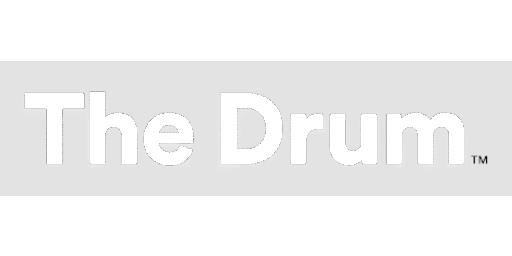
Unless you’ve been living under a rock for the past 18 months you’ve likely heard about the blockchain (or at least cryptocurrencies), but do you understand what it is?
What is it?
In a nutshell, the blockchain is an emergent technology that is essentially a method of digital record-keeping. In their 2016 book, the Blockchain Revolution, authors Don and Alex Tapscott described the blockchain as “an incorruptible digital ledger of economic transactions that can be programmed to record not just financial transactions but virtually everything of value.”
To break this down even further, consider a spreadsheet that is duplicated thousands of times across a network of computers. Then imagine that this network is designed to regularly update and authenticate this spreadsheet and you have a basic understanding of the blockchain.
Why is the blockchain a big deal?
Well, because the blockchain is a publicly available and decentralized ledger, there is not a single version of it that can be hacked, corrupted or independently edited. This makes it exceptionally secure and unusually transparent in its nature. Furthermore, it’s exceptionally fast compared to current systems because of its autonomy.
One of the main uses cases for such a technology is ‘smart contracts’, sometimes called self-executing or digital contracts. Smart contracts are seen as a major threat to skilled intermediaries (middlemen) such as solicitors, bankers and estate agents. Why? Because using the blockchain it is possible to monitor, execute and enforce an agreement without human interaction. This removes the need for a broker or third party, which reduces cost by eliminating their fee-earning role and increases the speed of any transaction.
Smart contracts could also revolutionise the ways in which we interact with governmental and healthcare organisations. Blockchain technology could facilitate remote voting, in turn generating much higher voter turnouts because you would no longer have to turn up to a set physical location with a specific form of ID in order to vote and could instead could use a smart contract on the blockchain to cast your vote online from the comfort of your own home (or wherever you feel like doing it!). As for healthcare, personal health records could be encoded and stored on the blockchain with a private key which would grant access only relevant information to specific individuals at the correct time, as well as keep track of medications, appointments and much more.
As Alex Tapscott concluded, ‘With blockchain technology, a world of possibilities has opened, and we now have a true peer-to-peer platform that enables personal economic empowerment. We can own our identities and our personal data; we can do transactions, creating and exchanging value without powerful intermediaries acting as the arbiters of money and information.’
But I thought blockchain was just about cryptocurrencies!?
I’m skimming over cryptocurrencies within this article it’s because I think that’s a misnomer when it comes to understanding the importance of the blockchain and what it means for the evolution of the internet and marketing as a whole.
Cloud computing pioneer Joshua McKenty drew an equivalence between Bitcoin and blockchain to Napster and peer to peer technology in the late 1990s, when Napster become synonymous with illegal file sharing and digital piracy.
“You couldn’t talk about Napster [and P2P] and have it be a positive conversation. Bitcoin has done that to blockchain. It will take us time to recover what Bitcoin has done to get to something that is really useful [with blockchain],” he said.
With that, let’s shelve cryptos for the time being…
Ok, so how does any of this affect digital marketing?
It shouldn’t come as a surprise to anyone using the internet in the 21st century that our data is being collected, sold and used to target us. Whether its cookies from our web browsers, the records kept by our ISPs or the information about ourselves we give away freely on social media, our personal data can easily be bought and sold to advertisers.
Blockchain technology is a potential solution to this, as evidenced by Blockstack, a network built on blockchain-verified signatures that is being described as “web 3.0” in some circles. On Blockstack your personal data remains with you rather than on the servers owned by your application. Visiting a site or using an app is like inserting a key into a lock: you keep a personal copy with you at all times, and once you place it in the lock, you take it out when you are done. There’s no running log kept of who used the lock and when. This means your data is your own and not being monetised by others without your consent.
The blockchain could also have major implications for display advertising, a platform dominated by two of the internet’s data-collecting powerhouses; Google and Facebook. Opinion on display advertising is pretty universal these days – it’s annoying, intrusive and sometimes a bit creepy when that particular item stalks you around the internet for a couple of weeks. Fear no more though, the guy who created Javascript and co-founded Mozilla, Brendan Eich, has launched a new project to resolve this problem, another web browser called Brave.
At its core Brave is an ad-blocking web browser with higher adoption on mobile devices where it speeds up page load times and reduce data usage because of its blocking of unwanted adverts. Brave uses its Basic Attention Token (BAT) as a way to manage advertising; advertisers buy adverts using BAT, and users can opt-in to viewing certain types of advert and are compensated with BAT themselves. Yup! You get paid for watching adverts! Finally, the ad publisher is gets paid (in BAT) by both the user and the advertiser. What this all boils down to is this; digital marketers benefit from optimised campaigns as they are targeting a more receptive audience, publishers gain a revenue stream and have direct control over the ads they display, and users get fewer, but higher-quality ads that are actually related to their interests – without compromising their personal data, all thanks to blockchain encryption.
We’re just starting to scratch the surface of what can and will be done with the blockchain, and we’re already seeing some huge corporations taking a large interest in what it can do, such as Microsoft, J.P.Morgan, Shell and Cisco. As Jeremy Epstein, CEO of NeverStopMarketing says, “You don’t need to know exactly how it works. Just like very few marketers know that SMTP makes your email work. All you need to know is that [email] is better than faxing. If you’re a marketer… you need to be focused on the implications of [blockchain].”



